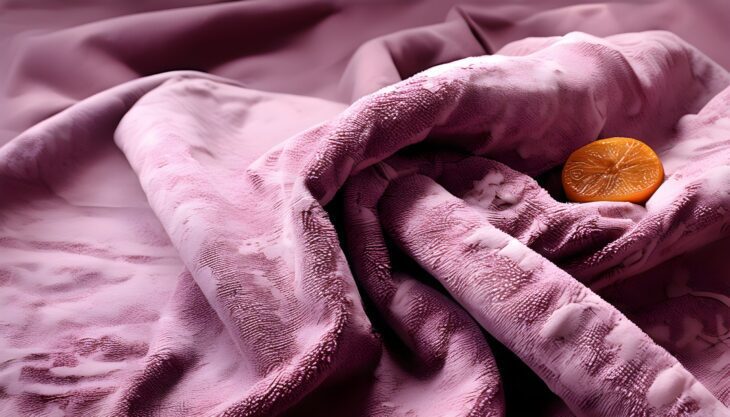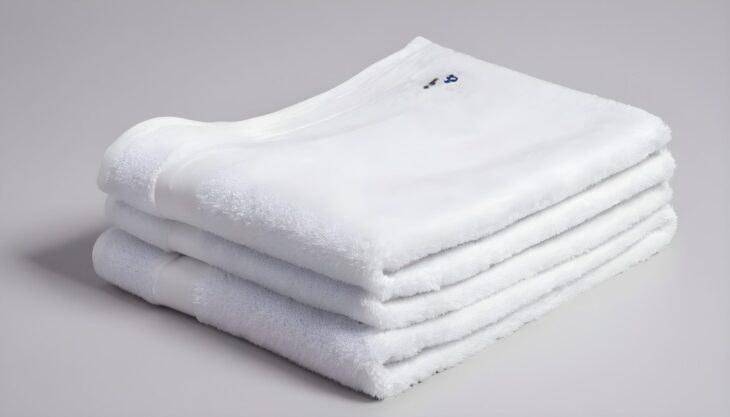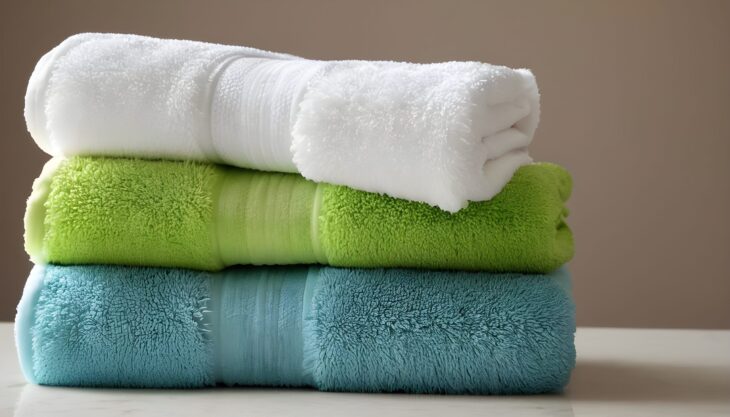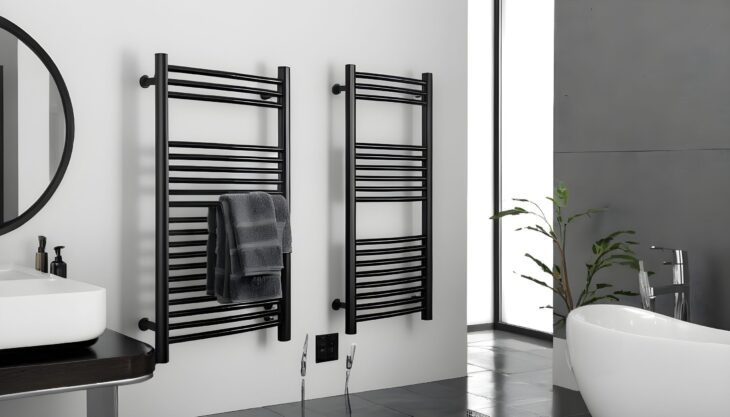Introduction
The alluring fragrance of hotel towels is a delightful sensory experience that frequently makes visitors curious about the formula behind their allure. Hotel towels are not like regular towels; they have a unique freshness that enhances the entire visitor experience. Strict laundry procedures and the use of premium detergents, softeners, and fabric conditioners provide the carefully chosen scent. In order to prepare us for a deeper investigation into the realm of hospitality linen care, this introduction delves into the intriguing olfactory attraction of hotel towels, asking us to dissect the components that give rise to their distinct and alluring aroma.
The Importance of Fresh Towels in Hotels
Upon entering a hotel room, guests generate important first impressions, and one such impression is the presence of fresh towels. Everything about the stay was heightened by the sight and feel of freshly laundered, well-organized towels.
Both comfort and hygiene: New towels are a visible sign of a hotel’s commitment to provide guests with the highest caliber of hygiene. Feeling comfortable and at peace during a guest’s stay is facilitated by fluffy, clean towels.
Hotel towels are often scented with a light, pleasant scent, which is known as aromatherapy and sensory experience. This adds a luxurious touch and improves the sensory experience, making the space feel more like a spa.Quick Housekeeping Services: Replacing towels on a regular basis demonstrates a hotel’s dedication to providing thorough housekeeping services. It indicates that you are attentive to your guests’ needs and guarantee a constantly enjoyable stay.
Convenience for passengers: Having access to clean towels reduces the need for passengers to bring their own, especially those who are on the go. It is especially convenient for those who are traveling for business or who value packing light.
Good Internet testimonials: Reviews from previous guests frequently emphasize the availability of clean towels. Good remarks enhance the hotel’s web reputation and have an impact on prospective visitors who take these reviews into account when deciding which room to reserve.
Improved Ambience in the Room: Towels that are neatly folded and arranged enhance the hotel room’s atmosphere.
Quality of Towels Used in Hotels
Towels do not all function the same way.
The remarkable softness and absorbency of premium hotel towels are their defining features. Visitors anticipate plush towels that effectively absorb moisture and are kind to their skin, making their stay both opulent and practical.
Strongness and Extended Life: Hotel towels are made to be able to resist repeated washings and hold up over time. Sophisticated towels guarantee a constant degree of comfort for visitors all through their stay, which lowers replacement costs for the hotel.
Two of the most important markers of superior towels are the thread count and fabric quality. More thread count towels, typically composed of high-quality fabrics like Egyptian cotton, are preferred by hotels for their plush feel and increased durability.Color Fastness: After multiple washing, towels that possess color fastness maintain their color and integrity. To maintain a consistent and aesthetically pleasing presentation and strengthen a favorable first impression with guests, hotels place a high priority on colorfast towels.
Eco-Friendly Options: As the importance of sustainability increases, more and more hotels are choosing eco-friendly towel options. These could include towels that adhere to environmental concern and quality requirements by using recycled or organic materials.
Embroidery and Branding: Subtle and expertly done branding or embroidery are common on high-quality towels. This highlights the hotel’s dedication to giving visitors a first-rate experience while also lending a hint of refinement.
Consistency Across Towel kinds: Hotels strive for uniformity in the quality of all offered towel kinds, be it face, hand, or bath towels.
Laundry Practices in Hotels
Premium hotels make investments in high-end laundry facilities that are fit for pros and have state-of-the-art equipment to handle heavy loads of linens. Reliable and prompt delivery of freshly cleaned goods is guaranteed by these facilities.
Tight Quality Control: Hotel laundry procedures require strict quality control measures. The hotel only allows guests to use things that adhere to its high standards of excellence.
Sorting Fabrics: To avoid color bleed and provide the best possible washing, fabrics are usually sorted according to their kind and color. To keep each piece intact, delicate fabrics, colored goods, and whites are frequently washed separately.
Hotel Use of Commercial-Grade Detergents: Known for their efficaciousness in disinfecting and removing stains, commercial-grade detergents and laundry solutions are employed. Energy-efficient laundry methods are a top priority for many hotels in an effort to lessen their environmental effect. This entails making use of energy-saving appliances, doing laundry in cold water whenever feasible, and setting up laundry regimens to optimize machine performance.
Regular Linen Changes: To keep their rooms feeling clean and welcoming for visitors, hotels follow strict linen change schedules. Towels, bed sheets, and other textiles are changed at prearranged times to maintain comfort and cleanliness throughout the visit.
Appropriate Drying and Ironing: Linens are dried and ironed properly following washing. This improves the products’ general cleanliness by getting rid of any leftover bacteria or allergies and guaranteeing a clean, glossy appearance.
Care of Staff Uniforms: To keep them looking polished and businesslike, hotel staff uniforms are given careful attention.
Fragrance Additives in Laundry
Enhanced Freshness: Fragrance additions are mostly used to give laundered products a nice, fresh aroma. This gives clothing and linens a pleasant scent and improves the appearance of cleanliness overall.
Benefits of Aromatherapy: Aside from their pleasing scent, some laundry fragrances are also picked for their aromatherapy advantages. It’s thought that some smells, like eucalyptus or lavender, have relaxing or energizing properties that improve customer satisfaction.
Odor Masking: After washing, fragrance additives are essential in covering up any lingering smells on clothing or linens. For things like kitchen towels or sportswear that tend to hold scents, this is very helpful.Possibilities for Customization: Customers are frequently presented with a selection of scents, which enables customization according to personal taste. Adding a personal touch to the laundry process is achieved through personalization.
Formulas Free of Allergens: Many fragrance additives are now offered in hypoallergenic or allergen-free versions to assist people with sensitivities or allergies. This guarantee makes scented laundry advantages safe for those who are sensitive to fragrances.
Softness and a nice smell are two benefits that fabric softeners offer when they are infused with fragrance ingredients. Combining these two improves the feel and smell of clothes that have been laundered.
Novel scent Technologies: Novel formulations have resulted from the progress made in scent technologies.
The Psychology Behind Scented Towels
Connection to Cleanliness: There’s a common belief that the aroma of recently laundered towels corresponds with cleanliness. The brain is capable of making associations through smell, and a fresh, pleasant scent lets the brain know that the towels are hygienic and new.
Enhanced Comfort and Relaxation: The aroma of fragrant towels helps to promote comfort and relaxation. A comfortable and attractive smell can elicit a happy feeling and foster calm and wellbeing.
Aromatherapy for Emotional Well-Being: Towels scented with lavender or chamomile, for example, have relaxing qualities. Scented towels can add to a relaxing and stress-relieving experience. Aromatherapy is the technique of employing smells to positively effect emotions.Beneficial Effect on Guest Experience: Fragrant towels enhance the overall guest experience in the hospitality industry. Fragrances are deliberately used by hotels to create a warm and memorable atmosphere that makes an impression on visitors and affects their level of satisfaction.
Reduced tension and Enhanced Mood: Fragrances possess the ability to lessen tension and improve mood. The act of utilizing towels scented with uplifting and pleasant fragrances can have a good effect on the user’s emotional state, encouraging contentment and relaxation.
Psychological Comfort via Familiarity: Using towels with constant fragrances helps foster psychological comfort via familiarity. Taking visitors back to their hotels or letting people use their favorite house scent creates a familiar and cozy atmosphere.
Brand Image and Customer Experience
The perception and interaction between a brand and its customers are shaped in large part by brand image and customer experience. Customer satisfaction, brand loyalty, and economic performance are directly impacted by how a brand is viewed and the whole experience it offers. This is a thorough examination of the relationship that exists between brand image and customer experience:
First Impressions Matter: A company’s reputation has a big impact on what consumers think of it right away. A consumer’s initial impression sets the tone for their whole customer experience, and elements like logo design, brand colors, and visual identity play a part in this.
Maintaining coherence in brand message, values, and visual identity among a range of touchpoints helps to strengthen a unified brand identity.
Sustainability in Towel Practices
Material Selection: Selecting sustainable towels requires great consideration before proceeding. The best options are towels composed of bamboo, organic cotton, or recycled fibers. The ecological footprint of the towels is decreased because these materials are manufactured or grown with less harm to the environment.
Organic Cotton Production: By avoiding the use of artificial fertilizers and pesticides, organic cotton towels support sustainable farming methods. Growing cotton organically is a greener choice since it improves soil health and lowers water pollution.
Bamboo Towels: Because bamboo grows quickly and needs little water, towels made from its fibers are becoming more and more popular. Bamboo is an environmentally beneficial substitute for conventional cotton towels because it is a rapidly renewable resource.
Common Scents Used in Hotels
Citrus: Reviving and energetic scents are associated with citrus bases, such as grapefruit, lemon, or lime. Hotels use these scents in their lobby areas and common rooms to create a lively and energetic feel.
Hotel rooms usually smell of lavender, which is well-known for being peaceful and restful. In spas, wellness centers, and guest rooms, it’s commonly used to create a serene mood.
Green Tea: The fragrances of green tea are often associated with freshness and hygiene. To evoke a sense of rebirth and freshness, green tea smells are occasionally utilized in public areas like toilets.Sandalwood: The woodsy, deep scent of sandalwood oozes refinement. To create an opulent and sophisticated atmosphere, hotels may utilize sandalwood fragrances in high-end areas like lounges or suites.
Ocean Breeze: Cleanliness and freshness are frequently linked to the aroma of ocean breeze. In order to create a feeling of seaside calm and a sense of being connected to nature, hotels situated close to the shore may use this fragrance.
White Tea: White tea fragrances are delicate, light, and airy, which makes them appropriate for a range of hotel environments. Because of its gentle and pleasant scent that creates a friendly atmosphere without being overbearing, this fragrance is frequently chosen.
Conclusion
In summary, the alluring aroma of hotel towels is a deliberately created part of the guest experience rather than merely a coincidental event. Everything from the standard of linens and laundry procedures to the calming effects of aromas plays a part in creating an experience that guests will remember. The next time you wrap yourself in a brand-new hotel towel, acknowledge the care and attention to detail that goes into bringing that lovely, reassuring scent to life.






